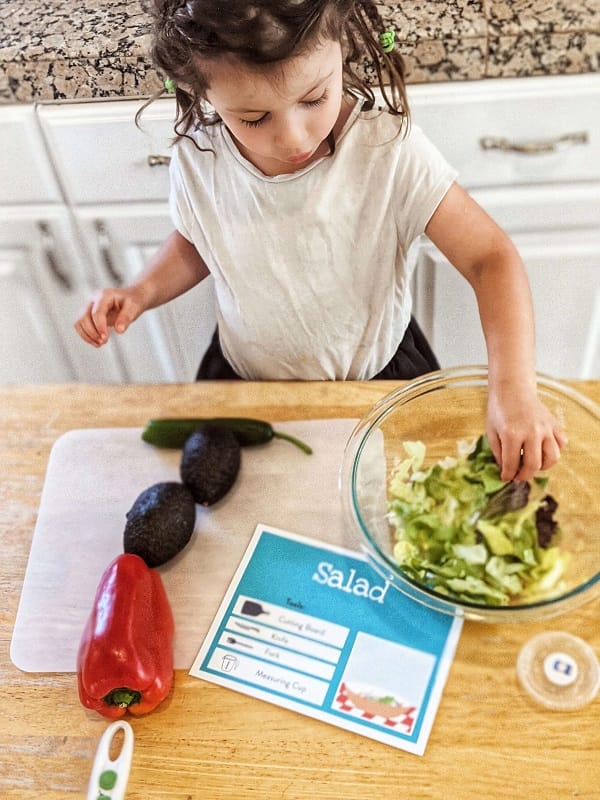Do you eat processed food? Chances are you do, since it provides almost 60% of our daily calories. And who can blame us? Life is so busy, and processed foods are convenient, easy and delicious. Purchasing, prepping and cooking unprocessed foods takes a lot of time, energy, planning, and to be honest, money. Not to mention washing all of those pots and pans.
What is Processed Food?
Basically, it’s food that is no longer in it’s original form. But there are levels.
The least processed foods would be fresh fruits and vegetables.
Minimally processed foods are not in their original form, but have nothing added to them. This includes things like flour, frozen vegetables and oil. These aren’t inherently bad for you and probably make some of those unprocessed foods taste a whole lot better.
The next category is processed ingredients. Theses foods have sugar, salt or fat added. This category includes things like bread, cheese or canned beans. Again, nothing too terrible.
The real problem is category 4, or ultra processed foods (which I will refer to as processed foods). These are foods that have more than sugar, salt and fat added to them. These foods probably contain colors, flavors, preservatives and even some vitamins or minerals.

Here are the 5 things you absolutely must know about processed foods.
1. It's probably not that good for you
Processed food is high in added sugar, salt and saturated fat.
More precisely, almost 75% of the added sugars in our diets comes from a package. This makes sense, since added sugars are added during the processing part. Still, it’s important to note that the best (and really only) way to decrease your added sugars is by cutting back on processed foods.
Roughly 57% of our saturated fat comes from processed foods. There are many health risks associated with saturated fat, so eating fewer processed foods is a way to keep your saturated fat intake low.
The majority of our sodium also tends to come from processed foods.
High sodium diets are linked to a lot of diseases. Heart failure, osteoporosis, kidney disease, certain types of cancer, stroke and headaches. The American Heart Association recommends 1500 mg of sodium a day for adults, and even less for kids.

2. It increases your risk of disease
Studies show that people who eat more ultra processed foods are at a higher risk of developing certain types of cancer. Just increasing your processed food intake by 10% increased the risk of cancer by more than 10%.
Now, what this study does not show is what exactly in the processed foods causes cancer. It could be the extra fat, sugar and sodium. It could also be any number of additives, flavors, colors or really anything else in the food.

3. They're out to get you
If it feels like everywhere you turn there’s more and more processed foods, you’re right. Clever marketing and labels can make grocery shopping difficult, especially if you bring the kids.
Fresh fruits and vegetables can’t compete with baby sharks and talking pigs. In fact, one hypothesis of the correlation between being overweight and watching television has nothing to do with the lack of physical activity. It’s due to the marketing of unhealthy foods toward a young and very vocal population. Up until the age of 8, children don’t really understand the purpose of ads. They see something that looks awesome, and they want it. As they will tell you over and over and over again.
The owners of the stores know this. So where do they place the most colorful boxes? That’s right, exactly at eye level for a child sitting in a shopping cart.
Or at the checkout line, where everyone is short on patience. The screaming and crying have a way of forcing parents to reevaluate their priorities.
4. The labels are misleading
Without reading nutrition facts, it’s hard to know what exactly is in most of the food we buy.
Certain foods, like cereal or yogurt have many nutritional benefits. The problem isn’t really yogurt or whole grains. The problem is the sugar and food coloring added to it. Fruit flavored yogurt contains about 16-17g of sugar per serving. Plain yogurt contains 12g.
Those small differences don’t matter too much if these foods are special treats. They do start to make a difference when you’re eating 3 servings of cookie flavored yogurt each day.
The other problem with packages is that they’re misleading. You may not know how much sugar is in a granola bar, but it sounds like it’s a healthy food. (As someone who used to make granola bars, I can tell you that the number 1 ingredient was sugar.)
Or they pretend to be healthier than they are. Crackers and cookies labeled “Gluten-Free” or “Non-GMO” signal that they are “healthy.” As does any package that claims it contains real fruits and vegetables.
It’s really hard for an unadorned apple to argue with the bright, colorful packaging of strawberry flavored applesauce.

5. It's not all bad
Processed food carries a stigma (when was the last time you bragged about your talents at unwrapping breakfast?), but there is an upside.
We get about half of our fiber, calcium, potassium, iron, folate and vitamin B-12 from processed foods. These important nutrients are necessary for overall health. As always, it’s important to read and understand the nutrition facts.
Another benefit is that processed foods can save us time, money and energy in the kitchen. Plus, they tend to last longer (thanks to preservatives) which means they make perfect additions to lunch bags.

